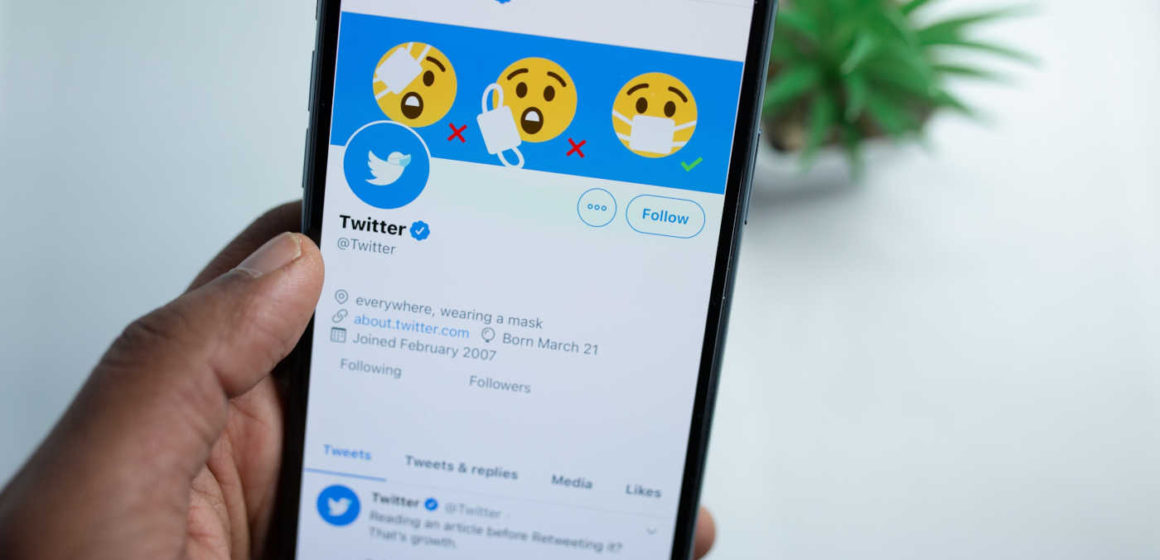Unveiling the Risks: The Impact of Social Media on Mental Health
In today’s digitally connected world, social media platforms have become an integral part of our daily lives. But with all its advantages, the impact of social media on mental health is becoming increasingly concerning, especially for younger generations.
This blog post aims to unveil the risks associated with excessive social media use and its effects on emotional wellness, physical health, and overall wellbeing.
We will also discuss the role of social media companies in addressing these issues and provide strategies for coping with potential negative consequences.
Key Takeaways
- Excessive social media use can lead to cyberbullying, comparison and self-esteem issues, addiction and dependence, and reduced face-to-face interaction which can negatively affect mental health.
- Social media companies have a responsibility to address these risks by being transparent and accountable, providing resources and support for users experiencing mental health issues related to their platforms.
- Strategies for coping with social media – related mental health issues include limiting social media use, finding alternative ways to relax and unwind, building support systems, and seeking professional help if needed.
Understanding The Risks: The Negative Impact Of Social Media On Mental Health
Social media can have a negative impact on mental health, including cyberbullying and harassment, comparison and self-esteem issues, addiction and dependence, as well as reduced face-to-face interaction.
Cyberbullying And Harassment
The impact of social media on mental health goes beyond just screen time and addiction; cyberbullying and harassment are significant factors contributing to emotional distress among users, especially youth.
Cyberbullying involves the use of digital platforms such as social media sites, apps, and messaging services to threaten, harass or intimidate others.
Victims of cyberbullying often feel helpless due to the anonymity provided by many social media platforms making it difficult for them to trace their tormentors. Real-life examples include teens being targeted for their appearance or interests leading to relentless ridicule from anonymous accounts on platforms like Instagram or Snapchat.
As part of taking responsibility for their products’ effects on mental health, social media companies must recognize the severity of this issue and continuously work towards implementing measures that combat cyberbullying effectively.
These measures may include effective reporting mechanisms for victims, stricter guidelines against hate speech and abuse as well as deploying technologies that proactively identify toxic content thereby reducing its visibility within these virtual communities.
Comparison And Self-Esteem Issues
Social media platforms foster a culture of comparison, where users constantly compare themselves to others. Research indicates that social comparisons on social media can trigger negative feelings and increase the risk of depression and anxiety.
Adolescents who use social media tend to feel left out or excluded when they see pictures of their peers engaging in activities without them.
For instance, young girls may feel like they are not beautiful enough if they do not look like their favorite celebrities or influencers. They begin to question their body image issues and eating behaviors which can lead to unhealthy habits such as over-restriction or binge-eating disorders.
As we move towards using technology in every aspect of our lives, individuals must be mindful of how much time they’re spending on social apps while carefully considering what effects those platforms have on their mental health.
Addiction And Dependence
Social media can become addictive and lead to dependence, especially among young adults. In fact, a study by the National Institute of Health found that social media use activates the same pleasure centers in the brain as drugs and gambling.
When individuals spend more time on social media than engaging with their friends and family in real life, it can cause them to feel isolated, anxious, or depressed. Social media platforms are designed to keep users engaged for longer periods by using algorithms that constantly refresh content.
To avoid developing an unhealthy relationship with social media, setting limits on usage is important. Experts suggest turning off notifications or designating specific times during the day for checking social networks so they don’t interfere with other tasks or responsibilities.
Reduced Face-to-Face Interaction
One of the risks associated with social media’s effect on mental health is reduced face-to-face interaction. As individuals spend more time on their phones and computers, they are less likely to have real-life conversations and interactions, which can lead to feelings of loneliness and isolation.
Additionally, reduced face-to-face interaction can also impact communication skills. Without regular practice communicating in person, individuals may struggle when it comes to making eye contact or reading body language during conversations.
It’s essential for individuals to recognize the importance of balancing their online activity with real-world relationships.
The Role Of Social Media Companies In Addressing Mental Health Issues
Social media companies have a responsibility to address the mental health risks associated with their platforms by being transparent and accountable, providing resources and support, and implementing safety features – read on to find out more.
Transparency And Accountability
Social media companies have a responsibility to be transparent about the impact of their platforms on mental health. This includes being accountable for any negative effects and taking steps to address them.
Companies should provide clear information about their data collection practices, algorithmic decision making, and how they are addressing cyberbullying and harassment.
For example, Instagram has implemented features that allow users to moderate comments on their posts, block certain keywords or phrases, or disable comments entirely. Facebook has developed tools that can detect potentially harmful content related to self-harm or suicide and connect the user with resources such as a helpline or nearby crisis center.
Providing Resources And Support
Social media companies have a responsibility to address the mental health issues that arise from their platforms. Here are some ways they can provide resources and support for their users:
- Offering mental health helplines or chatbots available within the app.
- Providing informative articles and videos on mental health to educate users on how to maintain good emotional wellbeing while using social media.
- Creating safe spaces and support groups for people experiencing cyberbullying, harassment, or other online abuse.
- Establishing partnerships with mental health organizations to provide expert advice and resources for people seeking help while using the app.
- Ensuring that users who report concerning content receive immediate support and follow – up, including possible referral to professional help if necessary.
By providing resources and support, social media companies can play a critical role in promoting positive mental health among its users.
Implementing Safety Features
Social media companies can take steps to implement safety features that promote safe usage and combat negative impacts on mental health. These measures include:
- Allowing users to report harmful or inappropriate content easily
- Providing resources for mental health support and crisis intervention
- Limiting access to certain features or content for underage users
- Introducing time – management tools that encourage responsible usage
- Utilizing AI and other technology to detect and remove harmful content such as bullying or hate speech
By implementing safety features, social media companies can help mitigate the risks associated with excessive social media use and create a safer environment for its users. These initiatives also reflect a growing awareness of the critical role social media companies have in promoting user wellbeing and mental health.
Strategies For Coping With Social Media-Related Mental Health Issues
To help combat social media-related mental health issues, there are several strategies you can implement including limiting your social media use, finding alternative ways to relax and unwind, building a support system, and seeking professional help.
Limiting Social Media Use
Limiting social media use can help reduce the negative impact it has on mental health. Here are some strategies for limiting social media use:
- Set specific time limits for social media use each day.
- Turn off notifications for social media apps to avoid constant distractions.
- Create designated technology – free zones and times in your daily routine.
- Delete or unfollow accounts that trigger negative emotions or comparison feelings.
- Use productivity apps that block access to social media during certain hours of the day.
- Spend more time engaging in hobbies and activities that bring you joy instead of scrolling through social media.
Research has shown that excessive social media use can lead to spending more time on social media than in the real world, which can increase loneliness and feelings of isolation. Additionally, studies have found that limiting social media use can improve sleep quality, reduce anxiety and depression, and enhance overall well-being. By taking steps to limit our social media use, we can prioritize our mental health and reduce the negative impact that excessive screen time can have on our well-being.
Finding Alternative Ways To Relax And Unwind
Excessive social media use can lead to increased stress and anxiety. It’s important to find alternative ways to relax and unwind. Here are a few suggestions:
- Engage in physical activity, such as yoga or running, to reduce stress levels.
- Try practicing mindfulness and meditation techniques that promote relaxation and calmness.
- Spend time in nature, whether it’s taking a walk in the park or hiking in the mountains.
- Read books or watch a movie that helps you escape into another world and take your mind off things.
- Connect with friends face-to-face instead of relying on social media interactions for socializing.
- Pursue hobbies that you enjoy, such as painting or playing music, to distract yourself from stressors.
Finding alternative ways to relax and unwind can help break the cycle of excessive social media use, which can improve mental health outcomes over time.
Building A Support System
Building a support system is crucial for those struggling with social media-related mental health issues. It’s important to surround yourself with people who understand and provide emotional support.
This can include family members, friends, therapists or counselors, and online support groups dedicated to mental health. For instance, research shows that youth who have positive relationships with their parents are less likely to experience anxiety or depression related to social media use.
Having a strong support system helps individuals cope with the negative effects of social media by providing an outlet for expressing emotions and offering constructive feedback.
Through these networks, one can receive guidance on how best to limit social media usage while also having someone they trust keep them accountable in terms of monitoring its usage.
Seeking Professional Help
When social media use begins to have a negative impact on your mental health, seeking professional help can be beneficial. A licensed therapist or counselor can provide you with the tools and resources necessary to address specific concerns related to social media usage.
These professionals may help you learn how to set healthy boundaries for social media use and develop coping strategies for managing anxiety, depression, or other mental health issues that may arise from excessive social media exposure.
It’s important to seek professional help early on before the negative impact of social media becomes too severe. Research has shown that adolescents and young adults who spend more time on social media are at an increased risk of developing mental health problems such as anxiety disorders, depression, self-esteem issues, and eating disorders.
Positive Ways Social Media Can Impact Mental Health
Social media can positively impact mental health by providing a platform for building communities and support systems, facilitating access to resources and information, and enabling the sharing of personal experiences with like-minded individuals.
Building Communities And Support Systems
One positive way social media can impact mental health is by building communities and support systems. Social media platforms such as Facebook groups, Reddit subgroups, and Twitter hashtags provide an avenue for people to connect with others who share similar interests or experiences.
For instance, people struggling with anxiety or depression have found solace in online support groups where they can share their experiences, offer advice to one another, and receive emotional support from individuals who understand what they are going through.
Additionally, social media has become a tool for advocacy groups that focus on raising awareness of different mental health concerns such as PTSD or eating disorders.
In conclusion, while social media may have its drawbacks when it comes to mental health risks like cyberbullying or addiction; at the same time it offers avenues for community building that’s instrumental in reducing these risks altogether among younger generations whose lives revolve around this technology so much.
Providing Access To Resources And Information
Social media companies have a responsibility to provide users with resources and information related to mental health. This can include links or articles on how to cope with stress, anxiety, or depression.
For example, Instagram has partnered with the National Eating Disorders Association (NEDA) to provide users with support and resources for those struggling with eating disorders.
Additionally, Facebook provides a feature that allows individuals in crisis to connect with professional counselors through Messenger.
Sharing Personal Experiences And Finding Like-Minded Individuals
Social media can provide a space for individuals to share their personal experiences and connect with others who have similar backgrounds or interests. This can be especially beneficial for those struggling with mental health issues, as it helps to reduce feelings of isolation and provides a sense of community.
Furthermore, social media has created opportunities for people to find like-minded individuals who they may not have had the chance to meet otherwise. This is particularly important for those living in rural areas or areas where there is limited access to mental health resources.
Support groups on Facebook or online forums offer individuals the opportunity to connect with others from all around the world who are going through similar challenges.
Conclusion: Balancing The Pros And Cons Of Social Media For Mental Health
In conclusion, while social media has its benefits, it also comes with risks. The negative impact of social media on mental health is becoming increasingly evident, especially among young people.
Cyberbullying and harassment, comparison and self-esteem issues, addiction and dependence, reduced face-to-face interaction are some of the major dangers that need to be addressed.
However, social media companies can play an essential role in addressing these challenges by being transparent and accountable, providing resources and support as well as implementing safety features.
Individuals can also take steps to protect themselves such as limiting their social media use or seeking professional help when needed.
FAQs:
- How does social media affect mental health?
Excessive use of social media can have negative effects on mental health, such as increased risk of depression, anxiety, and poor sleep quality. Seeing unrealistic standards of beauty or success can also lead to feelings of inadequacy or low self-esteem.
- What steps can I take to protect my mental health when using social media?
To safeguard your mental well-being while using social media, it’s important to limit screen time and take frequent breaks from scrolling through feeds. Additionally, consider unfollowing accounts that make you feel bad about yourself and seek support if you notice negative changes in your mood or behavior.
- Can taking a break from social media benefit my mental health?
Yes! Taking a break from social media can be beneficial for one’s work-life balance and overall well-being by reducing exposure to potential sources of stress and anxiety.
- Are certain types of social media platforms more harmful than others?
Some studies suggest that image-focused platforms like Instagram may have greater impact on mental health due to the emphasis placed on appearance and comparisons with others’ curated content. However, all forms of excessive use can potentially contribute to negative psychological effects regardless of the specific platform being used.
General Facts
- Social media use can impact emotional wellness, physical, and mental health.
- Qualitative research indicates that social media can contribute to low self-esteem, increased depression, and increased anxiety.
- Social media exposure can increase the risk of eating disorders, unhealthy weight-management behaviors, and depression.
- Social media platforms have a role in how their products impact on mental health and wellbeing.
- There is evidence that social media can have both positive and negative impacts on children and adolescents.
- Excessive social media use can lead to spending more time on social media than in the real world.
- Social media can be a risk factor for mental health issues among young adults.
- The negative impact of social media on mental health has been the subject of research papers.
- Social media use among adolescents and young adults is associated with mental health concerns.
- Social media and mental health issues are interconnected.
Source URLs
https://scholarworks.lib.csusb.edu/cgi/viewcontent.cgi?article=2131&context=etd
https://www.ncbi.nlm.nih.gov/pmc/articles/PMC9645642/
https://www.mcleanhospital.org/essential/it-or-not-social-medias-affecting-your-mental-health
https://www.hhs.gov/sites/default/files/sg-youth-mental-health-social-media-advisory.pdf
Social Media and Mental Health
https://www.npr.org/2023/02/16/1157180971/10-things-to-know-about-how-social-media-affects-teens-brains
https://www.medicalnewstoday.com/articles/how-has-social-media-affected-mental-health-during-the-pandemic

Dr. O “TheTeenDoc.” helps clinicians communicate better with their teen patients. She speaks, blogs www.TheTeenDoc.com, researches and consults on communicating with teens. She has written two e-books for parents and teens on communicating about the challenging subject of sexual health. You know, teens that bring chief complaints of belly pain, social crisis, emotional turmoil and obnoxious parents. Or, is it the parents with obnoxious teens? Sometimes she mixes that complaint up.
Dr. O speaks www.TheTeenDoc.com to and is consulted by clinicians who want advice managing difficult teen and teen-parent situations. These situations frustrate clinicians and slow down their clinics making them wonder if they’ll ever walk out the door for the day. Every day, in her own practice, Dr. O helps clinicians communicate better with teens and helping you is another level of reward. Her talks are fun and informative, and her delivery empowers clinicians to actually think teens are an awesome group to work with. Her energy about teens is contagious and has inspired her coaching clients to have less fear and more confidence with the teens in their panel. Her dedication to seeing you succeed with a group she is so passionate about is what makes Dr. O’s Lounge the place you want to be!
If you are a clinician that has teen’s in your practice, from pediatrics to internal medicine, the person with whom you need to connect is Dr. O “TheTeenDoc!” You can listen to a complimentary audio “The Art of Teen Medicine” and recommend her e-book “Are You Serious? It’s Just Sex!” to your patients. And while you’re there, become part of Dr.O’s Lounge.
Specialties: consulting, coaching, counseling, mental health, research, seminars, spanish, public speaker, teaching, communications between teens and adults



